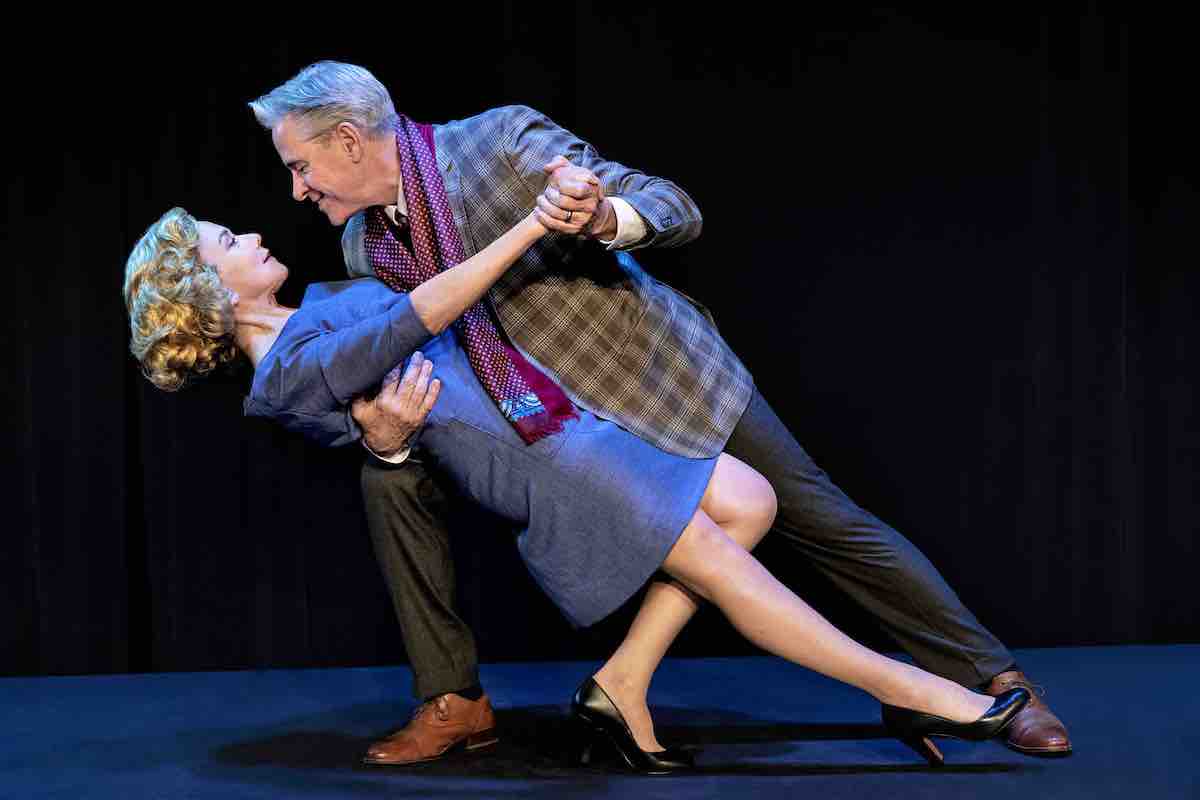‘Tenderly: The Rosemary Clooney Musical’ at ETC
Ensemble Theatre Presents Linda Purl in ‘Tenderly’

The monolithic image of the 1950s as a period of relative stability in American culture may have some validity when the decade is viewed from a distance, but get close to anyone who lived through it, especially a talented, high-profile performer like the great singer Rosemary Clooney, and that stable image starts to dissolve. In Tenderly, the two-person play with music that opens Ensemble Theatre Company’s 2021-22 season on Saturday, October 9, we learn just how difficult, lonely, and disruptive the Eisenhower Era could be even for those who would seem to embody it.
The superb actress and singer Linda Purl stars as Rosie, with David Engel as her therapist and every other character in this musical journey through Clooney’s extraordinary life story. There will be a jazz combo on stage with the performers, the better to fuel Purl’s vocal flights into the heady atmosphere of Clooney’s extensive catalog.
For director Jenny Sullivan, the show offers something we probably all need right now — “a play about survival.” Clooney’s story begins with a broken home; when she was just 13, her mother remarried and bailed on Rosemary and her sister, Betty, leaving them with their dad and his alcohol problem. The girls discovered a gift for singing, became “The Clooney Sisters,” got on the radio, and hit the road as featured vocalists in a touring big band led by Tony Pastor, all while they were still in their teens. Within three years, Betty had had enough of the life, but Rosemary was hooked. In 1949, when Betty returned to Cincinnati, Rosie moved to New York and signed a solo recording contract with Columbia Records.
This edition of ON Culture was originally emailed to subscribers on August 13, 2024. To receive Leslie Dinaberg’s arts newsletter in your inbox on Fridays, sign up at independent.com/newsletters.
The whirlwind success that Clooney experienced next had all the schizophrenic qualities of the American music business in the 1950s. She recorded some of the most sophisticated jazz albums of the era, including the classic 1956 collaboration with Duke Ellington and his Orchestra, Blue Rose. Yet what made her famous enough to merit co-headlining with Duke Ellington was another thing entirely — novelty songs such as the Italian dialect number “Come On-a My House,” that were pushed on her by producer Mitch Miller. These were songs that Rosie hated, but that the public loved.
The 1960s were not kind to Rosemary Clooney. She found her outstanding craft as a singer rendered dated and seemingly irrelevant by the rise of rock and roll. When her close friend Robert Kennedy ran for president in 1968, she met him at the Ambassador Hotel in Los Angeles for what should have been a victory celebration. Clooney was just steps away from Kennedy when he was assassinated. Within a period of months, she was sidelined with depression and an addiction to prescription medication, conditions that would prevent her from performing until her comeback in the 1970s.
Linda Purl knew Rosemary Clooney, and she has vivid memories of Clooney performing in her comeback period. She describes the songs in the show as “like little one-act plays.” In the course of telling Clooney’s story, Purl will sing such classics as “I Remember You,” “Sway,” “I Get Along Without You Very Well,” and “Have I Stayed Too Long at the Fair?” If you have ever been thrilled by the vocal stylings of Diana Krall, Barbra Streisand, or Celine Dion, you owe it to yourself to hear Purl sing Rosemary Clooney. Tenderly will give you a new feeling for where that sound and musical tradition comes from, and what it cost the people who created it.
Support the Santa Barbara Independent through a long-term or a single contribution.



